#gennadius library
Explore tagged Tumblr posts
Text

4 notes
·
View notes
Note
Γεια σου! I’m a Romanian History student specialising in International Relations and I am about to enter the last year of my Bachelor’s Degree, meaning I will have to write a thesis in order to obtain a diploma. I also happen to be learning Greek. I have been fascinated by the history of 20th century Greece for a while now and have written almost every essay we were assigned on topics surrounding it, thus I have picked “Greece’s foreign policy in the 20th century” as the topic for my thesis. As for any other scholarly work, I will be in need of primary sources and I was wondering if there are any Greek digitalised archives which may contain relevant documents regarding Greece’s foreign affairs and so on? Thank you so much!
Γεια! Bună! :)
I don't know if I can come up with sources for exactly what you ask in specific but here's some stuff I found.
I would first recommend the captain obvious / sly way: Go to the page of the History of Modern Greece in Wikipedia. The page is very detailed and long and it links you to even more detailed main articles about all the historical events one by one. And there are all the references you can search more and the citations you can use there. I linked the English page - but do study the Greek equivalent simultaneously. Sometimes the English one leans towards British / French "inherent innocence" in regards to its involvement in Greek matters. So both together, with their links to extra pages and all the references can provide a generous amount of information that will be pretty safe.
Old publications released by the Ministry of Foreign Affairs. They cover several of the years 1878 - 1921. Half are in Greek and half are in French though. Here's the link.
Here you will find the pdf of the standard senior high school book on modern and modern Greek history.
This is a pdf of the Topics on Modern Greek History, the schoolbook of the senior year in high school for those who plan to study humanities and social sciences in particular.
The link I am giving you below includes online catalogs from Greek libraries (National Library, Academy of Athens and Gennadius Library). It also has links to open access databases on Modern Greek studies. It's catalogs though, research guides. Not access to the books themselves.
One that might be useful is the Journal of Modern Greek Studies. It's the scientific journal dealing with Greek history and culture exclusively after the Byzantine era.
I would recommend the podcast of historian Giorgos Mavrogordatos - Διορθωτικά Μαθήματα Ιστορίας (Corrective History Lessons). It's very serious work, based on his books as well which he mentions so you can search for them and buy them for more info or in order to cite them. You will find his podcast everywhere, Apple, Spotify, and pod.gr . It has around 67 episodes I believe, the first nine discuss other incidents in Europe and the world which could be similar to Greece's situation and then all the rest are about Greece - mostly the events of 1922 but stretching before and after that, and then some episodes about the Greek monarchy. Of course the problem is that it is, well, a podcast, therefore you need to be acquainted with listening to Greek rather than reading it.
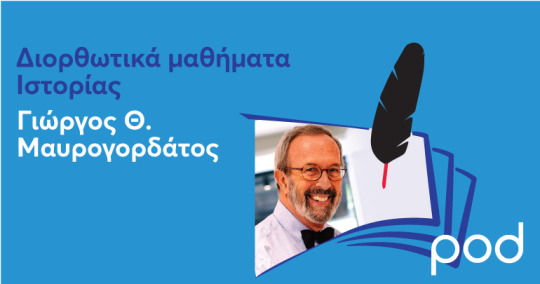
A history website that has great quality and a lot of stuff is Η ΜΗΧΑΝΗ ΤΟΥ ΧΡΟΝΟΥ. It has also articles about world history and its own podcasts. It has a huge archive of articles on Greek history and particularly the modern one, and a lot of little known events, people's documentations and experiences of said historical events, which can give a touch of spice to your thesis. Check out its history menu in this screenshot:
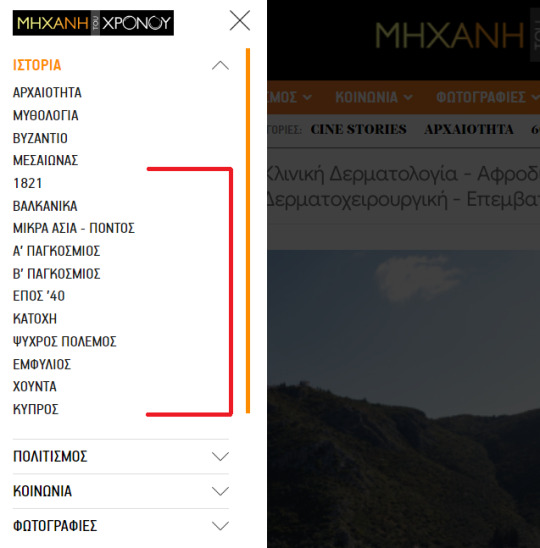
See, it covers the 20th century exhaustively. Of course, it's a website, so what you can do is that once you read something useful in this website, you then make a targeted search about it on the Internet to find the scientific sources and citations because they don't do it themselves often. But they are legit.
That's the best I could do. Inviting anyone knowing history professors' by name to give us links to their publications (cos I am bad with names and remembering sources and such) or if there is any digital archive database you know out there, help Anon out!!!
In the meantime, I still think the wikipedia can save a life when used carefully. And the podcast is good. In fact, if you search your pod app with Greek characters about "νεότερη Ελληνική ιστορία", it might give you several useful results.
BTW I was amazed to find out that we apparently do not have a Greek-based proper, modern, attractive, friendly to use website about Greek History (all of it), addressed to everyone interested and just being a good, extensive and easily accessible source of historiographical content. I have seen many other nations, even much smaller, having such and putting a lot of work in them (although to my recollection in some cases the contents are wild and not very scientific...). You'd expect Greece would have something similar (hopefully minus the unscientific part) about Greek history but nah. This is both sad and not surprising at all. I mean, η μηχανή του χρόνου is good but it's mostly Greek for Greeks. And other blogs that are very personal and subjective may lack in integrity. But an official modern state-supported website that could engage people from all over the world? Nah. I mean, the ministry itself suggests in the year of our Lord 2023 to use IE4 as a browser! Put THAT on your thesis Anon *laughs to hide the frustration*
#greece#greek history#history#modern greek history#resources#i mean...meh#i hope buna is correct btw#anon#ask#tw long post#tw long text#tw long#coals of greece
11 notes
·
View notes
Text
Cataloging Librarian for the Gennadius Library in Athens
https://themanfrommensa.com/category/shop/ CATALOGING LIBRARIAN FOR THE GENNADIUS LIBRARY IN ATHENS (Position in Athens) The American School of Classical Studies at Athens (ASCSA) invites applications for the position of Cataloging Librarian at the Gennadius Library in Athens. The American School of Classical Studies at Athens (ASCSA) is one of the world’s leading research and teaching…
View On WordPress
0 notes
Text

Lord Byron's rose wood visiting card tray
on display at the Gennadius Library- American School of Classical Studies in Athens (Athens, Greece)
23 notes
·
View notes
Photo

Athens. Gennadius Library Photo by ASCSA Student Associate Member Melanie Godsey
6 notes
·
View notes
Text

Engraving of Laskarina Bouboulina (1830) by Adam Friedel
The Gennadius Library - The American School of Classical Studies at Athens
#engraving#Laskarina Bouboulina#Greek heroine#Adam Friedel#Gennadius Library#American School of Classical Studies at Athens#Greek War of Indipendence#March 25th 1821#philhellenism
0 notes
Text
Art in The Good Fight and (The Good Wife) - Part 1
as promised, i am resharing some of my art threads from twitter over here. to recap, as a history major and art nerd, i have always loved looking at the art shown in the sets of period drama, but it was really striking to me how obviously intentional it was being used to assist in telling story in The Gilded Age (plus Impressionist lover Mrs Sylvia Chamberlain was just begging for it).
while part of it is about identifying the art because i do love an easter egg, the other part i find really interesting is thinking about how art reflects character and story. so, i started thinking more about art in The Good Fight/The Good Wife, and i started a twitter thread and it became a season long thing this year for the final season.
this post is part 1 of 2 about the art in The Good Fight/The Good Wife, and in particular, Diane Lockhart's impeccable art taste. so, without further ado...
this is my hands down fav, which is in Diane's Boseman/Reddick office in TGF, Girl with Peony by Andy 'Zig' Leipzig 🔥
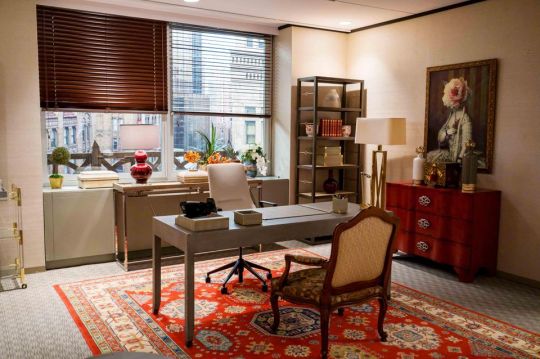

i adore the surrealism and guess what i found? sunflowers of course 🌻🌀🌻 this is Andy 'Zig' Leipzig's Have a Heart, 2014.
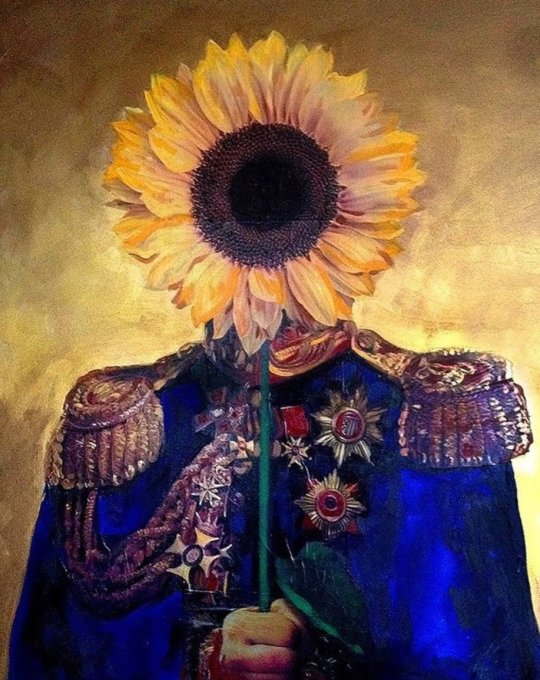
in Diane's old apartment in TGW era, the engraving on the right is by Jean-Pierre Louis Laurent Houël, Vase cineraire et figures antiques (1782, Gennadius Library).

the left looks like Bougainvillea, Parivolia, Italy by Isabelle De Borchgrave (watercolour).


this is not Diane's, this is Sweeney's, but i have never been able to find this still life from TGW 419, which is a shame because it is GORGEOUS.
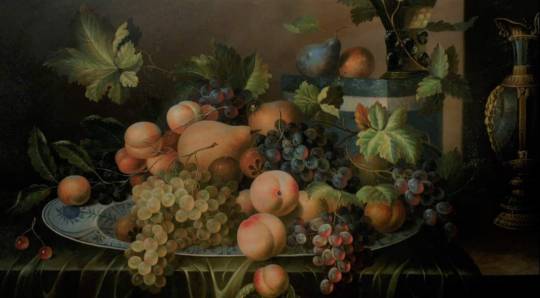
in the McHart apartment post TGF s2, there's an engraving by French artist Jean Louis Prévost, Flowers & Fruit.
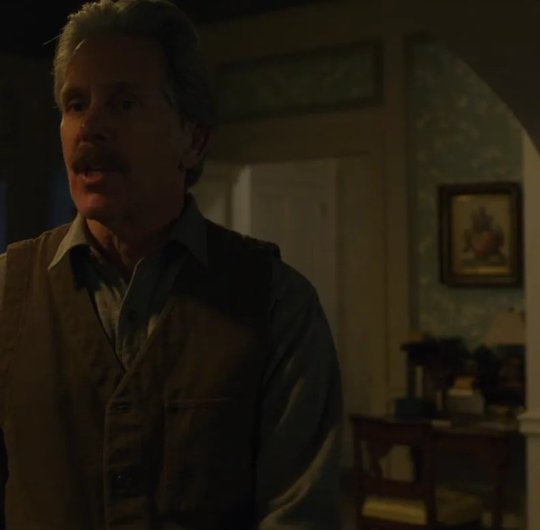

behind Kurt and more clearly here is a French Watercolour Landscape (distributed by Soicher Marin gallery).


there are also a few pieces in the bathroom, including some botanical prints visible only in the mirror. and this one above the fireplace, A Rainy Day, by an unknown American Continental School artist (20C, oil on canvas).


i'll be back next week on Thursday (aka missing TGF more than usual hours) for the rest of my thread, which focused on the art in s6 and was possibly more intentional than the rest of The Good Universe put together.
#the good fight#diane lockhart#christine baranski#kurt mcveigh#gary cole#robert and michelle king#the good wife#the good universe#tv series#nat's tangents#nat's art history threads
27 notes
·
View notes
Note
hello where did you find the levitis l'illiade oratorio? it sounds super interesting but i haven't been able to find it anywhere
thank you!
hi! the gennadius library at the american school of classical studies in athens has a digitized manuscript of the conductor's score (which is how i found out about it: check the dimitry levidis papers collection) but i am also unable to find a published/edited version or a recording :( i'm also bad at both greek AND french AND sight reading scores so trying to figure out what this sounds like is currently a very interesting struggle lmao
2 notes
·
View notes
Photo
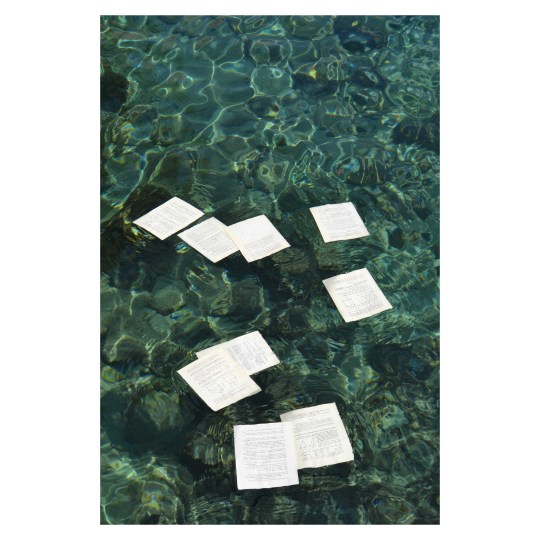
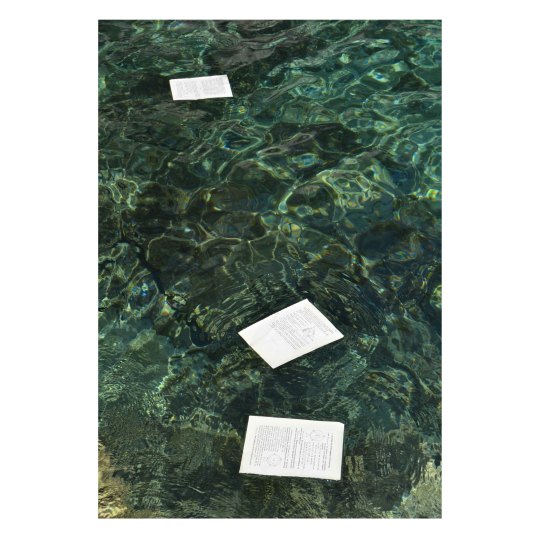
Liquid Library
Photographic series, each 70x40cm
Pages of a geometry textbook scattered on the surface of the sea and photographed as they drifted sunk and dispersed made during a residency at the Gennadius Library Athens in 2014 - following from a body of work created by an element of controlled chance, compositions created by the water’s unpredictable flux, human rationality inevitably defeated by the randomness & chaos of natural forces.
134 notes
·
View notes
Photo

Gennadius Library to celebrate the bicentennial of the 1821 Greek War of Independence with an exhibition honoring American Philhellenism - by Maria Georgopoulou
The exhibition, which will also be available online, is based on rare archival materials from the Gennadius Library as well as paintings and philhellenic objects from museums and private collections in Greece.
When, in 1821, the Greeks rose in rebellion after almost four centuries of Ottoman rule, Americans helped to arouse public sentiment and sympathy in favor of Greece, raised money and provisions to aid the cause, and lobbied their representatives to recognize Hellenic independence.
Philhellenes sought to convince the American public that Greece, as the birthplace of western civilization, deserved to be resurrected as a free and democratic state. Due to the government policy of neutrality established by the Monroe doctrine (December 1823), it was Americans as individuals who gathered to support the Greek independence movement and established philhellenic societies throughout the United States, culminating in the so-called “Greek fever.”
The cruelty of the war, especially the massacre of Chios, and the death of Lord Byron in Missolonghi inspired many young Americans to join the Greek revolutionaries.
Emphasis is given to a little known topic: the role Greek emancipation played in the progress toward the abolition of slavery in the United States. By highlighting the impact of one of the most famous statues by an American sculptor (Hiram Powers’s The Greek Slave), the exhibit seeks to enlighten viewers about the empathetic connection between Greek victims of Ottoman oppression and African slaves in America.
(click the title for the full article)
#greek independence#slavery#ottoman empire#1821 Greek Revolution#1821#some areas were under the ottomans for six centuries and others never got freed#greece and usa#philhellenism#the greek slave
13 notes
·
View notes
Note
In “Rise of Empires: Ottomans”, there is a scene where Mehmed II tells a Byzantine Turkish woman that he has studied Christianity. Is this true? Why was he interested in Christianity, and did he ever consider converting? Request More Ad by SEON. Fraud Fighters
I think Franz Babinger in his book Mehmed the Conqueror and His Time perfectly answers your question:
At times the sultan endeavored to inform himself of the principles of Christianity. As manuscripts found in his library bear witness, he caused his humanistic advisers, and especially the patriarch Gennadius, to instruct him in the history and doctrine of Christianity, and more than once strange reports reached the West to the effect that the sultan had been converted to Catholicism. It was even maintained that his Christian mother had taught him the Pater Noster and other popular prayers, but that he had forgotten them in later life and turned away from Christianity. Such tales cannot be taken seriously. More important perhaps is the "profession of faith" of Gennadius. This document has been preserved in its original Greek text and in a Turkish translation by a certain Ahmed Bey, judge in Karaferia (Thessaly). More than likely this credo was prepared at the Conqueror's bidding. But it would be a mistake to infer that Mehmed ever contemplated conversion. The conquest of the Byzantine capital and the Ottoman occupation of vast territories inhabited by Christians made it necessary for the sultan to inform himself about the religion of his new subjects, for it was evident that the administration and defense of the Ottoman state could no longer be entrusted exclusively to the Ottoman upper classes and a sprinkling of converts, but would have to be shared by all those in the newly conquered regions who by abjuring their Christian faith showed their readiness to be integrated in the sultan's political machine.
I’m sorry I don’t understand the last sentence of your ask.
18 notes
·
View notes
Text
Dead People's Things
Dead People’s Things
September 30th – October 6th, 2017
There is nothing that archaeologists love more than trash and dead people’s things. I guess they might like books more, but the pages don’t always stand the test of time. Trash, pottery, and tomb stones, on the other hand, last almost forever even after being neglected for hundreds of years.
a tombstone of a dead wrestler
In Athens we saw a lot of dead people’s…
View On WordPress
#Acropolis Museum#Acropolis of Athens#Agios Eleftherios Church#Ancient Agora of Athens#Church of the Holy Apostles#Gennadius Library#Goulandris Museum of Cycladic Art#Greek Parliament#Hadrian&039;s Arch#Hadrian&039;s Library#Kerameikos#Keramikos Archaeological Site#Lyceum#Lykeion#Mars Hill#Mount Lycabettus#National Archaeological Museum#Pittaki#Plaka#Pompeion#Roman Agora#Syntagma Station#Temple of Hephaestus#Temple of Olympian Zeus#Tomb of the Unknown Soldier
0 notes
Photo
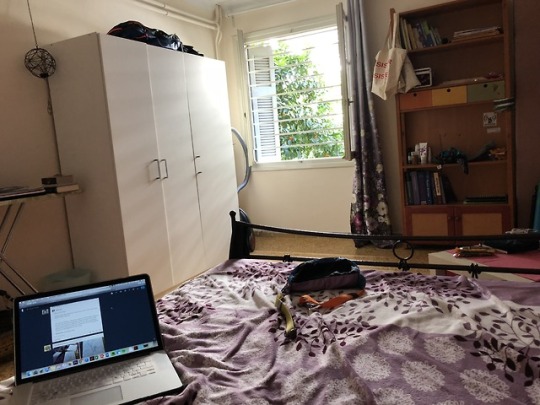
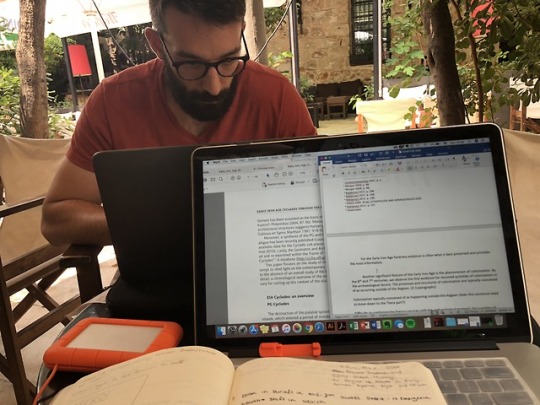
3/6/2018
I’ve been in Athens for a week now, and it feels so good!! Actual work on my summer projects begins tomorrow. In June, Evan and I will be writing our chapter(s) for the MAP monograph, and in July I’ll be back at the Agora working on some incredible late 5th century votive material with my PhD advisor, plus a week-long trip at the end to go look at some unpublished survey material on Samothrace. This week I’ve mainly just been getting settled and working on my thesis (read: desperately trying to finish). I saw my MA advisor for the first time since before Easter, and also since he announced his decision to take a job in NYC next year. I’m getting increasingly frustrated with his refusal to accept my work as complete. Haley says I need to talk to Kathleen about it and pull the PTSD card if necessary. If it continues for any further, I think I will. It’s seriously so unhealthy for me to continue working on this. I know he is trying to push me because he thinks I can handle it, and to get a spectacular result. But at this point I don’t want spectacular. I want finished.
It’s pretty weird to be working at the American School so regularly. (Working at the Agora is a similar, yet also really different experience than being up in Kolonaki in the Blegen Library/American School Compound.) Neither Evan nor I feel like we particularly belong there. This was underscored heavily yesterday when Syl (our friend/co-director of MAP/the new Mellon Professor at the school) told us to come to this reception for the grand opening of a new wing of the Gennadius Library. The security guards wouldn’t let us in, though, because it was this crazy high-brow function and our names were not on the list…so we just stood there looking at all of these extremely wealthy white people, who fancy themselves patrons of American scholarly aristocracy in Greece, filter in wearing their summer suits and fascinators. It was…just a lot. Idk. I am REALLY looking forward to being here next year, but I still have v conflicted feelings about the School and its place in the history of American presence in modern Greek society and archaeological work. Like, the ivory tower in general is something I struggle with, and the American School is an entirely different ballgame, tbh.
But being back in Athens in general has been just amazing. I’m so so proud of how well I’ve done in the ambulatory department. I walked over 4 miles yesterday!! Up and down crazy hills, on Athenian sidewalks, etc. I was really worried before coming, because being a pedestrian in Athens is difficult even if you are totally able bodied. But I’m doing so well! I always feel like my best, most competent and confident self here. This city excites and grounds me in a way that I will probably spend the rest of my live trying to articulate. Plus, properly living with Evan has also been great. We are such good friends and collaborators, and I am always stoked to spend time with him in the summers, since we live so far apart during the school year.
Anyway, pictured above are the two most common vantage points of the week. My lovely, sunny bedroom in our Zografou apartment, and working across a table from my main malaka. The bonus image is a depiction of our lunches. We’re bringing our totally uncivilized fieldwork food into the multimillion-dollar, manicured gardens, just chowing down on canned gigantes and dolmades. It’s a small act of irreverence, but an enjoyable one nevertheless.
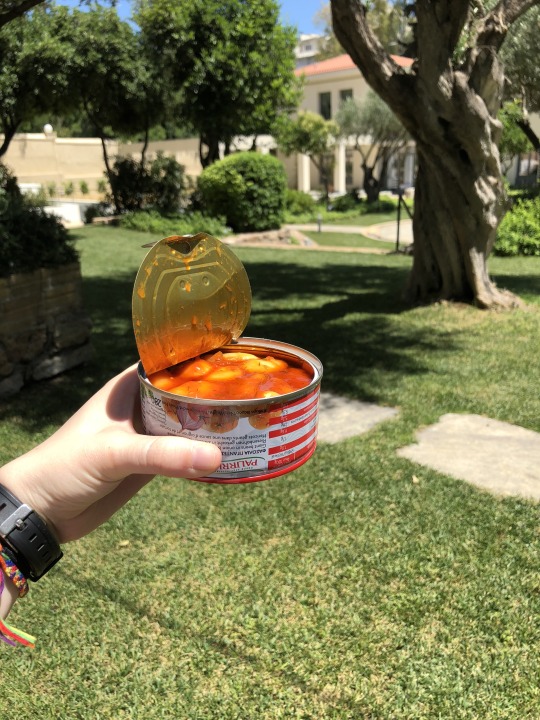
5 notes
·
View notes
Photo

Chef des porteurs d'eau d'une légion de Janissaires
Title - Officer, head of the water carriers of a Janissary division. Başlık - Su taşıyıcılarının Şefi, Yeniçeri Lejyonu.
Tarih - Date 1829
Bibliographic Citation - Bibliyografik Künye
[Album containing 77 original watercolour drawings of Greek and other Oriental costumes, ca. 1829.]
The Gennadius Library - The American School of Classical Studies at Athens Source: http://eng.travelogues.gr/item.php?view=60264
#water#water seller#water carrier#chef#chief#officer#istanbul#ottoman#constantinople#everydaylife#social sphere
0 notes
Text

illuminated manuscript of homer's iliad
the text of this manuscript is printed while the illumination is hand painted. this volume was published in florence in the the late 15th century, but has since been rebound (18th century). the man in the traditional renaissance florentine attire in the illumination of the M is Homer himself.
archived at the Gennadius Library, American School of Classical Studies in Athens (Athens, Greece)
34 notes
·
View notes
Photo

Athens A turtle crossing the steps of the Gennadius Library.
Photo by the American School of Classical Studies - @ASCSAthens
32 notes
·
View notes